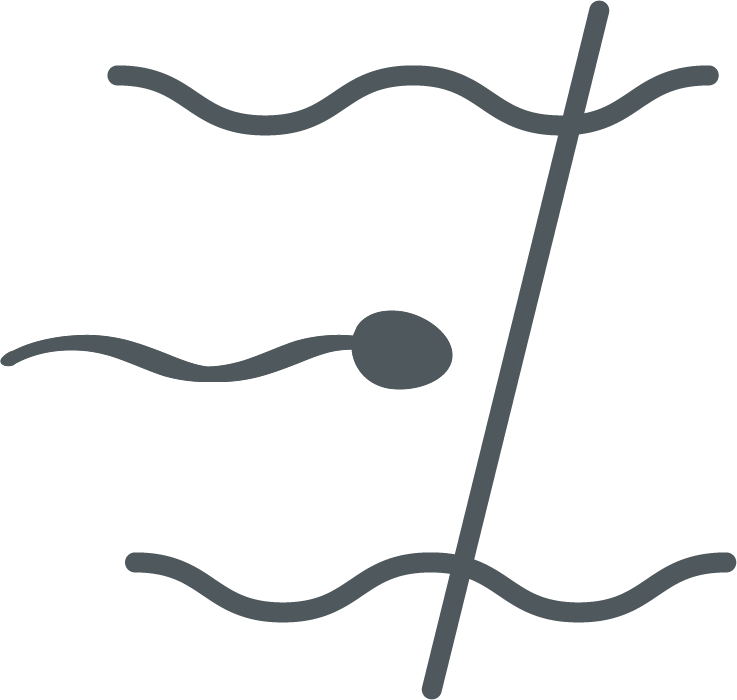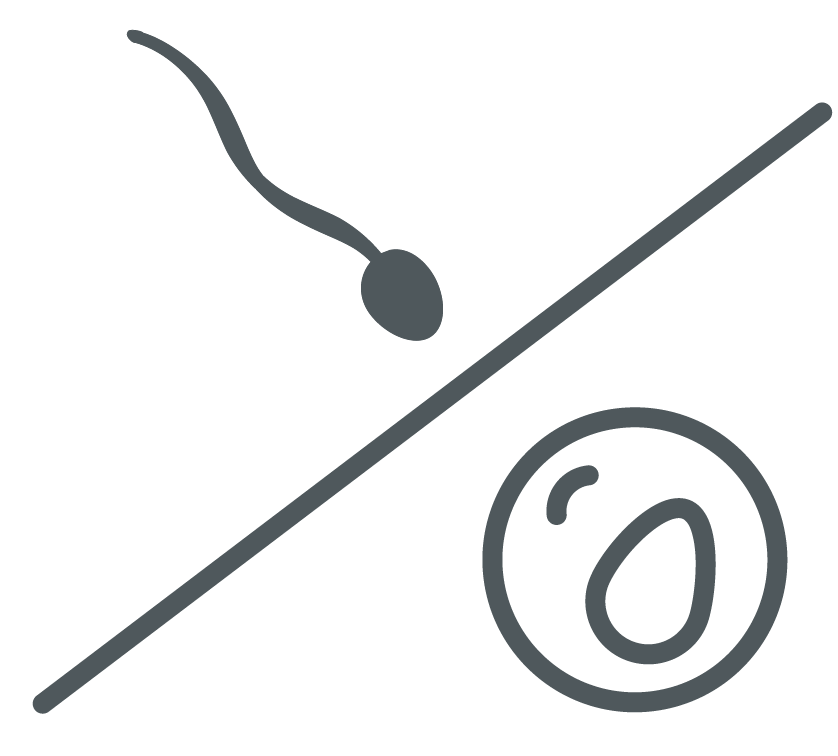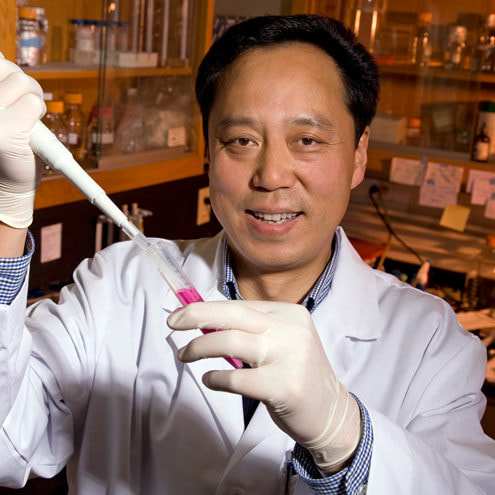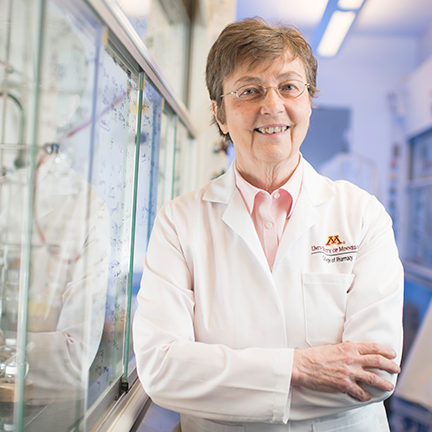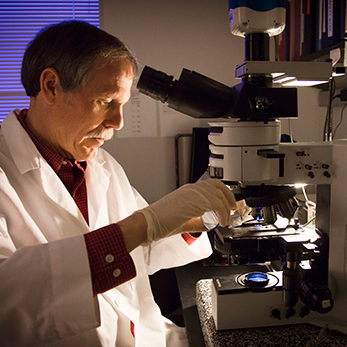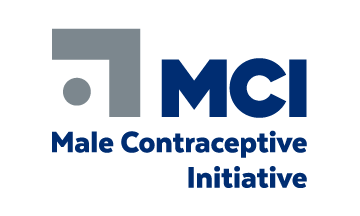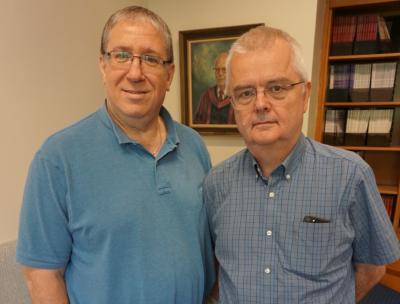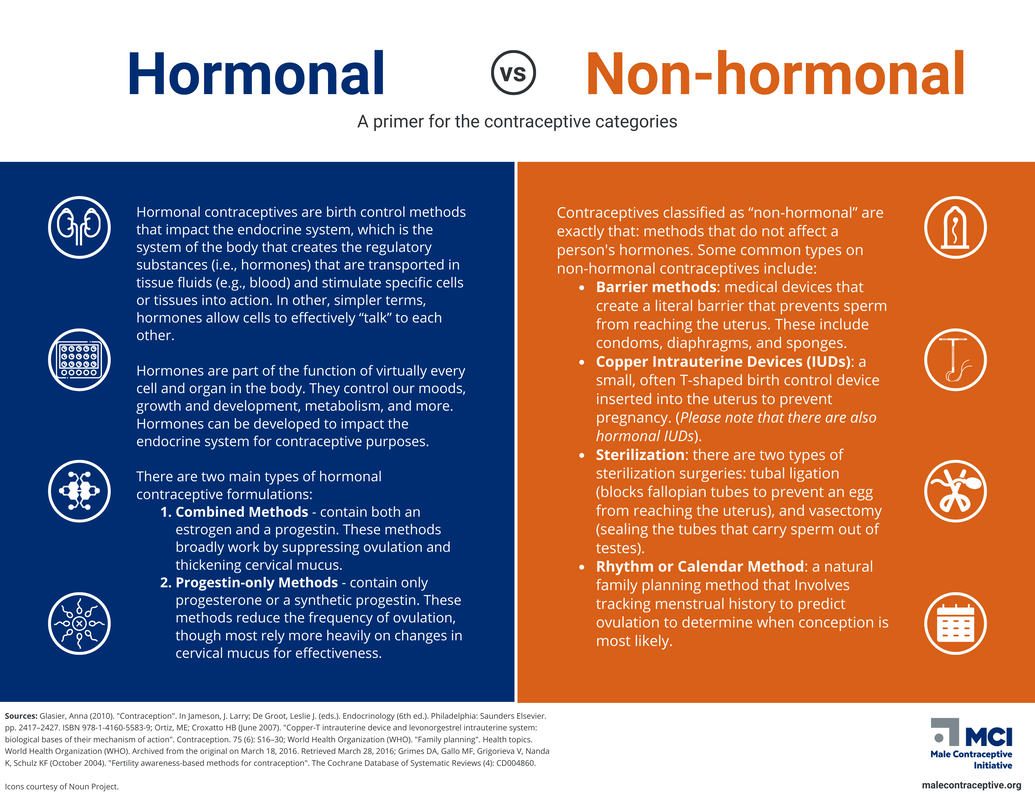There’s more than one way to contracept.
Male fertility can be reversibly inhibited through multiple approaches, and each target area could yield contraceptives with different characteristics. Male Contraceptive Initiative’s portfolio is diverse, targeting research in each area of study.
|
Sperm Transport
Interrupting the transit of sperm out of the body |
Fertilization
Preventing the interaction of sperm and egg |
Sperm Motility
Slowing sperm, preventing them from swimming |
Spermatogenesis
Targeting the creation & development of sperm |
|
Nuts & Bolts: Sperm Transport
|
Nuts & Bolts: Fertilization
|
Nuts & Bolts: Sperm Motility
|
Nuts & Bolts: Spermatogenesis
|
Male Contraceptive Initiative focuses on supporting the development of non-hormonal male contraceptives as they are comparatively underfunded, despite offering a greater opportunity for methods that meet the needs of more users. MCI supports non-hormonal, early-stage research efforts, investing in the long-term to create an eventual menu of options for men and women that meet their lifestyle and individual needs. (For more information on the differences between hormonal and non-hormonal contraception, please visit our "Hormonal & Non-hormonal Contraception Primer" or see below for a brief overview of non-hormonal contraception and related terminology).
We believe that all methods of contraception are meaningful components of a continuum of reproductive care necessary to provide everyone with the autonomy to decide what’s best for them and when.
We believe that all methods of contraception are meaningful components of a continuum of reproductive care necessary to provide everyone with the autonomy to decide what’s best for them and when.
What are the male birth control research activities MCI is supporting?
The science of male birth control can be a little intimidating if you do not have a background in science. To help make things more accessible, we created this section to highlight the work we are supporting.
A single injection that ensures a man cannot cause a pregnancy for years and is completely reversible.
|
Our grantee Contraline has invented a proprietary hydrogel called ADAM™ that is implanted into the vas deferens through a minimally invasive, outpatient procedure.
The hydrogel works by blocking sperm from traveling through the vas deferens. Similar to intrauterine devices (IUDs) for women, Contraline’s contraceptive is designed to last for years and be reversible. MCI’s support will be used by Contraline to prepare for filing with the FDA and initiating first-in-human trials. |
A reversible male birth control that impacts the head of the sperm, preventing it from fertilizing an egg.
|
Our grantee Dr. Wei Yan and his team of researchers have developed a new compound derived from a Chinese herb called the Thunder God vine (Tripterygium Wilfordii Hook F).
The compound works by causing the head of sperm to be malformed such that they are not able to connect with and fertilize a female egg. This effect only occurs while the compound is consumed, and normal function is fully restored after discontinuing use. MCI’s support allowed Dr. Yan and his team to explore the effects of the compound and publish their results. Because of MCI’s grant, our sister organization Contraceptive Accelerator Network is performing nonclinical studies on Triptonide that advance it towards human studies. |
|
Our grantee Dr. Mario Buffone has been working in the field of sperm physiology for two decades. His lab seeks to understand the complex process of mammalian sperm capacitation, the change sperm undergo in the female reproductive tract that enables them to penetrate and fertilize an egg.
Dr. Buffone is working to screen and identify drugs that are able to prevent the capacitation and therefore render sperm incapable of fertilizing an egg. MCI is supporting the Buffone lab’s studies with the intent of moving towards in vivo preclinical studies. |
A biodegradable implant injected just below the skin’s surface that can deliver a male contraceptive over a sustained period of time.
|
Our grantee Dr. Rahima Benhabbour designs and fabricates delivery platforms for HIV prevention, cancer treatment, and contraception.
Dr. Benhabbour launched her first start-up AnelleO, Inc. in 2016, focusing on developing 3D-printed intravaginal rings for the treatment of infertility. MCI’s support will help facilitate studies that develop and implement an injectable device that can carry drug and translate into human studies. |
A daily, or even on-demand, method of male birth control that prevent sperm from being able to swim when taken.
|
Our grantee Dr. Gunda Georg’s group has published over 200 scientific articles on the design, synthesis, and evaluation of biologically active agents. In addition to male contraception, her lab investigates areas of cancer and female contraception.
Dr. Georg's lab has focused on investigating the testis-specific serine kinase (TSSK) family. These proteins are expressed after sperm have been developed, and are likely involved in multiple steps that could make them excellent contraceptive targets. MCI’s support will help Dr. Georg’s team investigate the sperm-specific isoform of Na,K-ATPase, which is crucial for sperm motility (e.g., sperm’s ability to swim). |
|
Our grantee Dr. Mike O’Rand is the President and Chief Scientific Officer of Eppin Pharma, named after the protein EPPIN which is a critical component of sperm development.
Dr. O’Rand is developing a compound called EP055, a small organic compound that that targets EPPIN on the surface of sperm and prevents sperm from swimming. MCI’s support will help support Dr. O’Rand Investigational New Drug (IND)-enabling milestones that are required for Eppin Pharma to begin the process of entering first-in-man studies for EP055. |
A reversible male birth control method that causes sperm to become sterile.
|
Our grantee Dr. Stephen L’Hernault and his lab have worked on spermatogenesis (i.e., sperm creation) and fertilization for over 30 years.
Dr. L’Hernault is working on developing compounds that can block the function of the IZUMO1 protein, which is required to fertilize an egg. MCI’s support will help Dr. L’Hernault’s team to identify small compounds that reversibly block the function of the IZUMO1 protein. |
A cohort of excited young researchers motivated by curiosity, ambition, and the social good associated with male birth control.
|
Our Fellowship program features a mix of graduate and postdoctoral trainees, all working towards creating non-hormonal, reversible male contraceptive methods.
Our Fellows work on a diverse portfolio of projects that help move the male birth control forward. Our support allows our distinguished Fellows to focus on the research, publish data, and build the background they need to sustain a long career as an investigator. |
An on-demand method of male birth control that you take just before sex.
|
Drs. Lonny Levin and Jochen Buck are professors at Weill Cornell Medicine and are working on inhibitors of soluble adenylyl cyclase (sAC) as on-demand male contraceptives. Their deep expertise in sAC keeps them attuned to the effects of inhibitors on sperm functions such as motility.
MCI is supporting work that develops novel inhibitors of sAC as on-demand male contraceptives as well as translational research that assesses the pharmacodynamics of inhibitors on human sperm. These steps are crucial to understanding how the drug stays associated to sperm after ejaculation and its potential contraceptive efficacy. |
Nuts & Bolts: Hormonal vs. Non-hormonal Contraception
What is non-hormonal contraception?
Contraceptives classified as “non-hormonal” are exactly that: methods that do not affect a person's hormones. Some common types on non-hormonal contraceptives include, but are not limited to:
Contraceptives classified as “non-hormonal” are exactly that: methods that do not affect a person's hormones. Some common types on non-hormonal contraceptives include, but are not limited to:
These methods tend to have fewer side effects (e.g., headaches, nausea, depression, yeast infections, reduced sexual desire, etc.) than their hormonal counterparts and are not negatively impacted by interactions with other medical therapies (e.g., antibiotics). However, some of these methods, such as withdrawal and the rhythm method, have low efficacy, and might not provide reliable contraception.
Non-hormonal pharmaceutical products are currently in development for both men and women. These products will allow users greater flexibility in delivery options (e.g. pills, injectables) similar to current hormonal contraceptive offerings, without the potential drawbacks associated with hormonal method use. These products are designed to prevent pregnancy using a more targeted approach, focusing on inhibiting the activity or developmental pathway of a specific cell (e.g. sperm cells). Due to the specific action of these products, the chance of “off-target” effects is reduced, ultimately resulting in few or no side-effects.
Male Contraceptive Initiative focuses specifically on the development of non-hormonal contraceptive options for men. We feel that the time is right to take advantage of new technological developments and provide reproductive autonomy for all in a form that is reliable, safe, and reversible.
Non-hormonal pharmaceutical products are currently in development for both men and women. These products will allow users greater flexibility in delivery options (e.g. pills, injectables) similar to current hormonal contraceptive offerings, without the potential drawbacks associated with hormonal method use. These products are designed to prevent pregnancy using a more targeted approach, focusing on inhibiting the activity or developmental pathway of a specific cell (e.g. sperm cells). Due to the specific action of these products, the chance of “off-target” effects is reduced, ultimately resulting in few or no side-effects.
Male Contraceptive Initiative focuses specifically on the development of non-hormonal contraceptive options for men. We feel that the time is right to take advantage of new technological developments and provide reproductive autonomy for all in a form that is reliable, safe, and reversible.
Male Reproduction & Contraception
The science behind male reproduction can be challenging, yet it is critical to understand the biology in order to know how the male contraceptives of the future will function. In an effort to make this science more accessible, we have developed a series of primers about male reproduction and contraception:
Helpful terminology:
Conception - the process of becoming pregnant involving fertilization or implantation or both.
Contraception - the deliberate use of artificial methods or other techniques to prevent pregnancy as a consequence of sexual intercourse.
Contraceptives - devices or drugs designed to prevent pregnancy.
Ejaculation - the action of ejecting semen from the body.
Endocrine System - a chemical messenger system consisting of hormones, the group of glands of an organism that secrete those hormones directly into the circulatory system to regulate the function of distant target organs, and the feedback loops which modulate hormone release so that homeostasis is maintained.
Estrogen - any of a group of steroid hormones which promote the development and maintenance of female characteristics of the body.
Hormone - a regulatory substance produced in an organism and transported in tissue fluids such as blood or sap to stimulate specific cells or tissues into action.
Ovulation - the release of an egg during menstruation in females.
Progestogen/Progestin - a natural or synthetic steroid hormone, such as progesterone, that maintains pregnancy and prevents further ovulation during pregnancy.
Progesterone - a steroid hormone released by the corpus luteum that stimulates the uterus to prepare for pregnancy.
Conception - the process of becoming pregnant involving fertilization or implantation or both.
Contraception - the deliberate use of artificial methods or other techniques to prevent pregnancy as a consequence of sexual intercourse.
Contraceptives - devices or drugs designed to prevent pregnancy.
Ejaculation - the action of ejecting semen from the body.
Endocrine System - a chemical messenger system consisting of hormones, the group of glands of an organism that secrete those hormones directly into the circulatory system to regulate the function of distant target organs, and the feedback loops which modulate hormone release so that homeostasis is maintained.
Estrogen - any of a group of steroid hormones which promote the development and maintenance of female characteristics of the body.
Hormone - a regulatory substance produced in an organism and transported in tissue fluids such as blood or sap to stimulate specific cells or tissues into action.
Ovulation - the release of an egg during menstruation in females.
Progestogen/Progestin - a natural or synthetic steroid hormone, such as progesterone, that maintains pregnancy and prevents further ovulation during pregnancy.
Progesterone - a steroid hormone released by the corpus luteum that stimulates the uterus to prepare for pregnancy.
For additional terms and definitions, please be sure to visit our glossary page:

